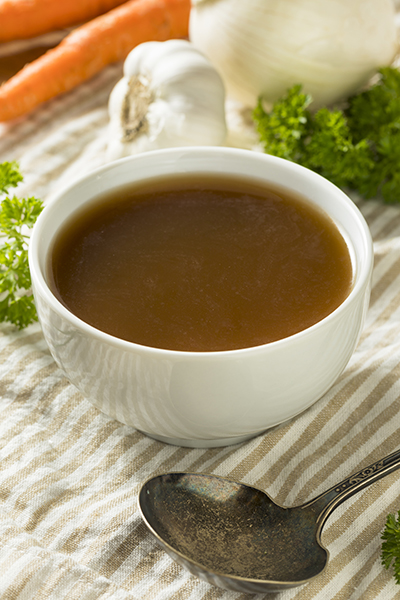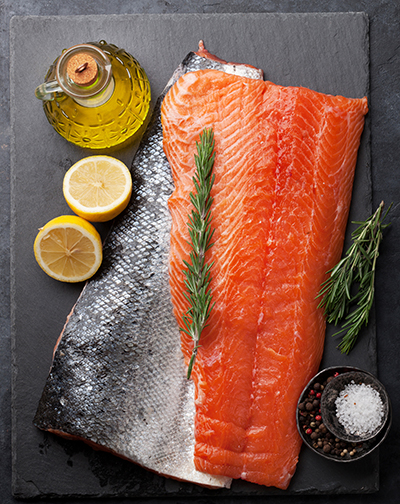Collagen: What Is It and What Are the Health Benefits?
What Is Collagen?
Collagen peptides have seemingly appeared out of nowhere. They are being advertised on social media, can be found on the covers of magazines… even my hairdresser has been talking about how she adds collagen peptides to her smoothies! But what are collagen peptides? Why is everyone adding this powder to their coffee, smoothies, or breakfast oatmeal bowl? And the real question is: Should you be adding collagen peptides to your diet as well?
Collagen is a structural protein that acts like a “glue” inside our bodies, in turn holding your body together. It provides integrity and elasticity, working to help our bodies function optimally and reducing the risk of injury. Collagen is found in abundance in our bodies and makes up over a third of the proteins that we are composed of.
There are four main types that are found everywhere from our skin to our joints, right down to the lining inside our arteries.[1]
As we age, we begin to lose some of the collagen in our bodies. This is what accounts for the loss of elasticity in our skin, resulting in the sagging and wrinkles that so many of us are paying good money to mask with cosmetic procedures.[2] It also plays a vital role in the laxity of our joints as we age, resulting in injuries occurring easier and more pain felt throughout our bodies. Collagen loss in our arterial lining plays a role in the decreased blood flow that the aging body experiences. Oxidative stress is another way that collagen can be damaged in your body. This can be due to things like smoking, excessive sun exposure, poor diet, and heavy alcohol use.[3]
Collagen peptides, also known as hydrolyzed collagen, is a powdered form of collagen that has undergone the process of hydrolysis, which breaks the collagen down into smaller, more easily absorbable molecules.
Health Benefits
Bone Health
Collagen has been shown to help maintain the structural integrity of our joints, bones, and cartilage. As we age, so do these components in our bodies, making us more susceptible to injury. A study published in 2016 found that collagen supplementation in the diet improved symptoms in patients with moderate to severe osteoarthritis in the knee.[4]
A study conducted in 2008 looked at the effects of dietary collagen supplementation in athletes who were at high risk for joint pain and deterioration. The results showed that the athletes who supplemented with collagen had reduced pain and potentially a lower risk for joint deterioration later in life.[3]
Gut Health
The amino acids play an interesting role in digestive health that we still have a lot to learn about. We do know that a large portion of our immune function resides in our digestive tract and relies on our digestive health, so a healthy digestive tract supports a healthy immune system.
A study published in 2017 supports the idea that people with inflammatory bowel disease—including IBS, Crohn’s disease, and ulcerative colitis—are absorbing lower levels of amino acids than they need. Supplementing with collagen can potentially improve the symptoms of inflammation, oxidative stress, and cell death.[5]
 Skin Elasticity
Skin Elasticity
We know that as we age, our bodies begin to show signs of it, including wrinkles and decreased elasticity. Eating a clean, nutrient-dense diet and avoiding oxidative stressors, such as sun and smoking, can help reduce the external effects of aging. However, incorporating collagen peptides into your diet can also help reduce skin wrinkles that appear as you age, and can help strengthen the dermal matrix to prevent further collagen loss.[6]
Cardiovascular Health
Excessive collagen loss, combined with poor collagen synthesis, can weaken plaque in the arteries. This can make the plaque more prone to breaking off and potentially blocking major arteries, resulting in atherosclerosis and heart disease. Maintaining healthy levels of collagen in the body can keep the arteries clear and supple, allowing for healthy blood flow throughout the body.[7]
 Where Can You Get Collagen?
Where Can You Get Collagen?
Bone Broth. Bone broth is basically chicken soup on steroids. The basis of bone broth is that you boil down bone and connective tissue in order to extract the nutrients, including the infamous collagen, but also things like iron, essential B vitamins, zinc, and fatty acids. Bone broth can be made with veggies and herbs as well to not only enhance the flavour but also contribute to the nutrient profile. Great recipes for making homemade bone broth can be found online. If you prefer to purchase premade bone broth, be sure to purchase quality broth derived from healthy animals in order to ensure the maximum nutrient profile.
Eggs, specifically the whites, are rich in glycine and proline, two of the major constituents of collagen. Getting adequate amounts of these amino acids will help your body produce collagen efficiently. That being said, egg yolks contain a great nutritional profile, so don’t pass up on the yolk every time just because it’s not where the majority of the collagen lies. Consider adding eggs into your oatmeal, making a frittata for the week, or enjoying them hard-boiled as easy ways to get in adequate egg intake.
 Salmon Skin. So many nutrients can be found in the skin of animals, salmon included. It is commonly consumed in other cultures and, if prepared correctly, salmon skin can be just as delicious as the rest of the fish. Marinate your salmon in equal parts maple syrup and soy sauce with a few minced garlic cloves and some black pepper for at least 30 minutes before cooking to ensure a good flavour.
Salmon Skin. So many nutrients can be found in the skin of animals, salmon included. It is commonly consumed in other cultures and, if prepared correctly, salmon skin can be just as delicious as the rest of the fish. Marinate your salmon in equal parts maple syrup and soy sauce with a few minced garlic cloves and some black pepper for at least 30 minutes before cooking to ensure a good flavour.
Collagen Peptide Powder. This is the latest craze all over the internet, and for a good reason. It’s an easy way to get collagen without having to do any real cooking or meal prepping. Collagen peptide powder is virtually tasteless and can be added into whatever is on your menu for the day. Throw a scoop in a smoothie or your bowl of oatmeal, sprinkle it in your morning cup of coffee if you don’t have time for breakfast, or add a few scoops into the batter of your baked goods.
Other Dietary Considerations. Eating a well-balanced, nutrient-dense diet will help counteract the oxidative stress in your body, therefore reducing the breakdown of your collagen. Keeping your sugar intake to a minimum will help avoid the inflammation and damage that can occur to your collagen. Rich protein sources, whether they are plant- or animal-based, will help provide your body with the amino acids needed to increase your collagen. Also, foods rich in essential nutrients and micronutrients will help stimulate your body’s collagen production.
Consider taking some time to see where you are able to reduce exposure to things that are causing oxidative stress in your body. In addition, think about how you can increase your collagen intake. Your body will thank you later.
References
- Shoulders, M.D., and R.T. Raines. “Collagen structure and stability.” Annual Review of Biochemistry, Vol. 78 (2009): 929–958.
- Rinnerthaler, M., et al. “Oxidative stress in aging human skin.” Biomolecules, Vol. 5, No. 2 (2015): 545–589.
- Clark, K.L., et al. “24-Week study on the use of collagen hydrolysate as a dietary supplement in athletes with activity-related joint pain.” Current Medical Research and Opinion, Vol. 24, No. 5 (2008): 1485–1496.
- Lugo, J.P., Z.M. Saiyed, and N.E. Lane. “Efficacy and tolerability of an undenatured type II collagen supplement in modulating knee osteoarthritis symptoms: A multicenter randomized, double-blind, placebo-controlled study.” Nutrition Journal, Vol. 15 (2015): 14.
- Liu, Y., X. Wang, and C.A. Hu. “Therapeutic potential of amino acids in inflammatory bowel disease.” Nutrients, Vol. 9, No. 9 (2017): 920.
- Proksch, E., et al. “Oral intake of specific bioactive collagen peptides reduces skin wrinkles and increases dermal matrix synthesis.” Skin Pharmacology and Physiology, Vol. 27, No. 3 (2014): 113–119.
- Kothapalli D, et al. “Cardiovascular protection by APoE and ApoE-HDL linked to suppression of ECM gene expression and arterial stiffening.” Cell Reports, Vol. 2, No. 5 (2012): 1259–1271.
- - -
 Mallory Murray, ND, utilizes the most noninvasive treatments possible while helping achieve the most optimal state of health.
Mallory Murray, ND, utilizes the most noninvasive treatments possible while helping achieve the most optimal state of health.

 Stores
Stores